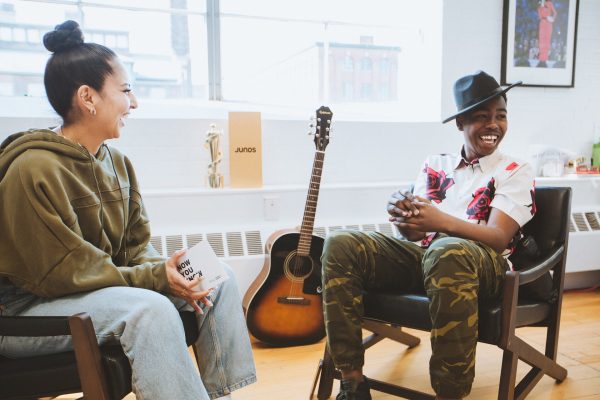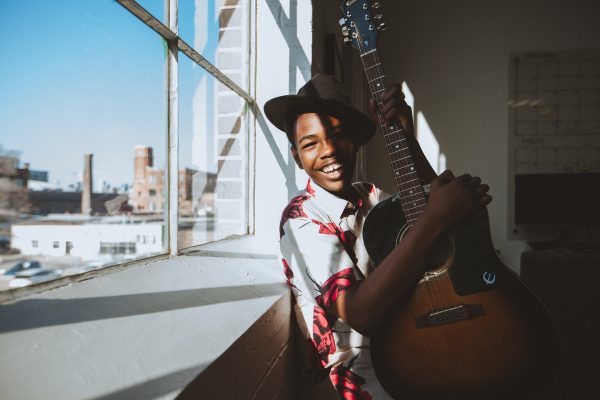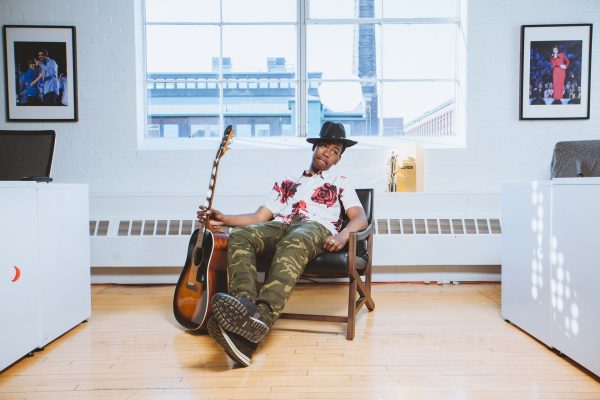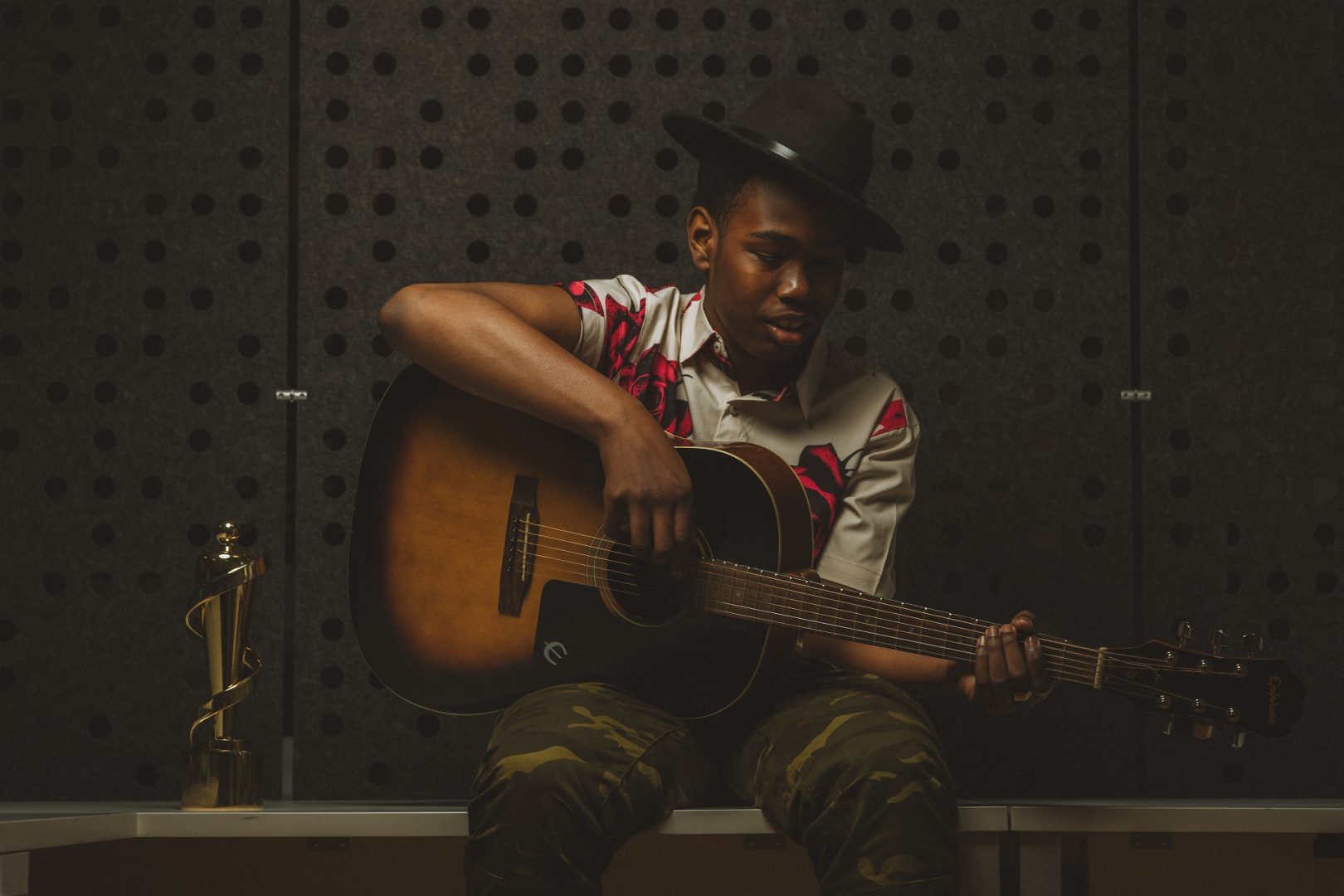Kairo McLean, the youngest JUNO reggae nominee and winner to date, draws inspiration from the genre’s lasting themes of love and peace — then puts his own spin on it. But, even after being recognized…
By NowPlayingToronto
By Meghan Yuri Young
Photography By Max Power
Kairo McLean quickly corrects himself: “I don’t wanna say I’m raised in Toronto because I’m still being raised.” At the tender teenage stage of life, the JUNO winner possess a humbleness that says as much about his music as it does about Kairo.
It also speaks to his old soul, which is very present in Kairo’s debut EP, Easy Now. The youngest JUNO nominee and winner for Reggae Recording of the Year, Kairo is influenced by artists from the 1970s and early 1980s. For him, it’s all about continuing to spread the message of love, peace and justice, which generation after generation of reggae artists have highlighted.
His conscientiousness makes it easy to forget that Kairo’s still in high school. Yet, that is top of mind for his parents. As much as they support his talent, they also encourage him to just be a kid. Being around them, you quickly sense the light-hearted innocence they help to foster in spite of the important topics Kairo touches on in his music.

MYY: I read that you’ve been dabbling in music since you were five years old. When we’re children, most of us explore our creative side. But how did you know, at such a young age, that this was something you wanted to dedicate a lot of your time to doing?
KM: I started out listening to, like, Bob Marley, Peter Tosh, and watching new videos. I’ve been fascinated with it ever since. This is just something that I’ve chosen to do, you know, because I want to emulate them as much as possible.
MYY: You have four siblings and they all also got into music, but you’re the only one who decided to create a career out of it. Do you know what differentiates you from your siblings? Is it just the pure love of reggae and music, or is there something else there?
KM: Well, a lot of them decided to start music when they were a little bit older. So, they had a little bit more responsibility. I guess because I’m so young, I can focus on music and school, whereas they have to focus on jobs and bills on top of the music. So, it was a little bit harder for them in that sense.
MYY: How is it balancing school with a career that is taking off?
KM: It’s a little bit difficult, but it’s fun. It’s fun because, you know, from 9 a.m. to 3:30 p.m. I get to hang out with all my friends. Then from 3:30 on, I get to do what I love outside of school. So, it’s, like, just fun all day for me, really.
MYY: Has your relationship with music evolved in any way since you became a recording artist?
KM: It’s really deepened it. In 2021, this was something we were trying out. I’ve come to a point over a year where I can now say this is my life, you know, and this is my parents’ life. Now, this is something. I don’t know how else to explain it.
MYY: You don’t have to. It can be hard to explain sometimes. Because it’s just…it.
KM: Exactly. It’s it.
MYY: Let’s fast forward a little bit. How does it feel being recognized on a stage like the JUNOs?
KM: It feels great, really. I know the message I’m singing about has gotten to people. [With the JUNOs, we were] on the highest platform I can get on in Canada. So, the message of peace and love, [was] being broadcasted all over Canada. I think, in these times, we really need it, you know?
MYY: Oh, for sure. A lot of your music is influenced by your Jamaican roots. More than that, you have such an old soul to your music. How did that come about?
KM: Once again, it’s the message of love that’s relevant to this day. Things like singing about clout and all those things, those come and go, but we need love every day, you know? That’s what really draws me to it. It’s a very powerful message — one that we need all the time.
MYY: It’s very pure and universal. Even though your music is inspired by Jamaican legends, does Toronto inspire your music?
KM: Of course! There are artists like Kirk Diamond, who I’ve met, who’ve been really inspiring. Not only that, but the landscape, where I’m from, you know? I’m from Scarborough. There’s a lot of basketball, a lot of friendly people.

MYY: Everything touches on your relationship with Jamaica. Have you been to the island?
KM: I have. In 2018.
MYY: What did it feel like finally going to Jamaica, experiencing the culture, the community? How did that affect your relationship with reggae?
KM: Honestly, it strengthened it. But it was a little bit sad because we only went for a week. It wasn’t enough time. Not only do I study reggae, I study the places and the people, so there wasn’t enough time to see everything that I wanted to see. I wanted to go to Trench Town and see Bob Marley’s house. I wanted to see all those landmarks. So, when we go back, I’m definitely gonna adventure all around.
MYY: What did you bring back with you to Toronto?
KM: I brought the energy that the people give up. Jamaica’s very communal and everything’s very brotherly. I feel like I brought that back to Canada. That’s just something that really inspires me and my music.
MYY: Does your school life also influence your music, or is it very much what you’ve learned through your family, your research, all the history?
KM: School inspires me somewhat. On Easy Now, I actually talk about bullying. It’s a major problem, especially now with xenophobia, those kind things. It’s become like another type of outbreak. I think that’s one of the major issues that needs to be tackled, especially here in Canada.
MYY: Even though people are still getting to know you, is there something that might surprise them?
KM: Well, I’m a reggae musician, but I don’t only listen to reggae! My favourite artist outside of reggae is actually Ray Charles. I draw influence from him into my music. I also really like blues and country, but a lot of reggae’s actually drawn from country music.
MYY: Who’s your favourite country artist?
KM: Garth Brooks.

MYY: One thing that’s stuck out to me about you is how you’re described as a prodigy when it comes to knowing the history of reggae. Why is it so important for you to not only know the craft, but to understand the history?
KM: Well, they say history repeats itself, you know? So, I feel like if I know the history, especially with things they were saying from those times, you can kind of get a sense for what’s going to happen. Their message is still relevant. If I know the history, like, where they’re coming from, then I can figure out where I’m going.
MYY: Do you think you’ll always be performing reggae, or do you think you’re gonna follow the footsteps of Ray Charles or Garth Brooks next?
KM: Actually, I’ve always had an idea for an album where I do a song from every genre. I don’t know if I’m going to do other genres full time. Reggae’s my life, but I’ll definitely try out different genres.
MYY: We can’t wait to hear it when you do! What advice would you give your peers who are looking to follow in your footsteps?
KM: Do things that I think are important for every artist. First, find a message you think is very important and strike on it every time. Second, find someone who, no matter what happens, won’t leave. For me, it’s my parents. Even if things go wrong, like, if you have a bad show or anything, they’re always there for me. Even when I’m feeling bad, they put me back up again.
MYY: Keeping in mind that you’re growing up while pursuing your passion, are you still trying to being young and carefree?
KM: I’m definitely still having a childhood. Although I’m doing this, my parents always make sure that the things that I want to do outside of music come first.
MYY: What’s the first thing you want to do outside of music?
KM: Basketball!
MYY: Is there anywhere in Toronto you want to go with your friends? Where do you want to visit?
KM: I want to go back to Rasta Pasta in Kensington [Market].
In 2022, Kairo accepted his award on the Budweiser Stage, which stages plenty of concerts. Browse the Budweiser Stage listings and then check out other upcoming music events in Toronto.

